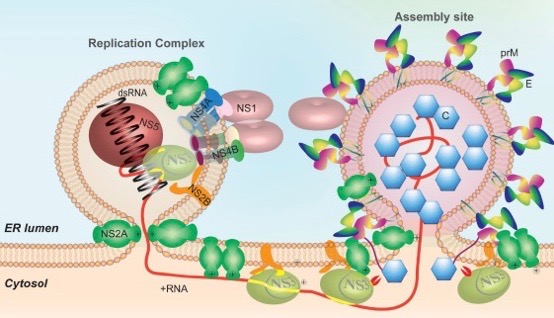GALVESTON, Texas – Two new studies from The University of Texas Medical Branch at Galveston have unraveled the mystery of how the dengue and Zika viruses assemble when they infect human and mosquito hosts. The results have recently been published in Cell Host & Microbe (for dengue virus) and mBio (for Zika virus).
“These findings represent major progress toward understanding how these deadly viruses are assembled during infection, which provides new opportunities for antiviral and vaccine development,” said Pei-Yong Shi, UTMB professor in the department of biochemistry & molecular biology.
In summary, now that scientists know how Zika and dengue viruses form inside infected cells, this knowledge could be used to deter or stop the viruses from gaining full strength through inhibiting virus formation.

